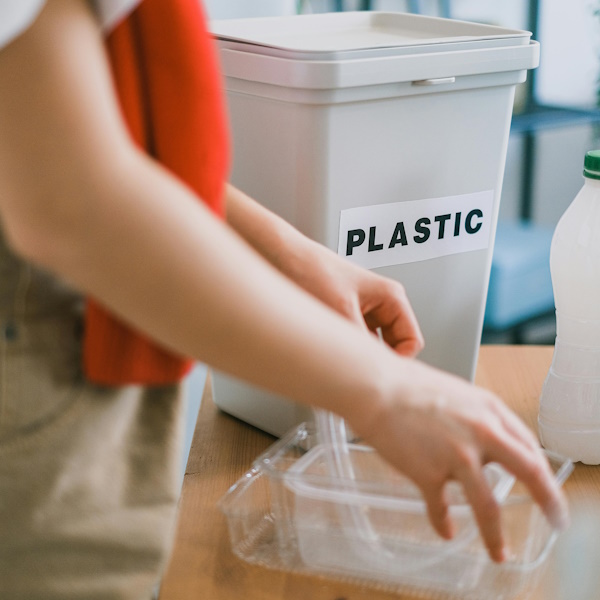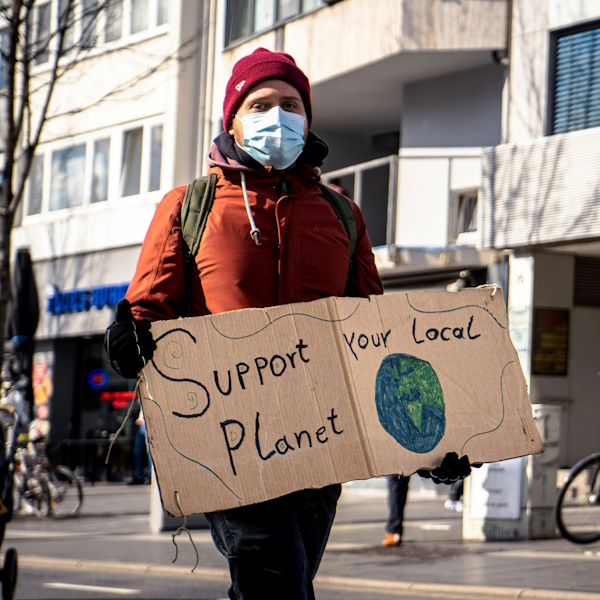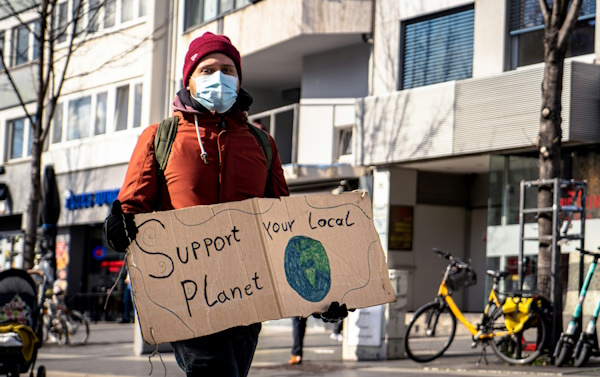Eco-Friendly Food Shopping: Sustainable Choices for a Greener Planet
In today's world, being eco-conscious isn't just a trend; it's a necessity. As you navigate through the aisles of your local grocery store, you might wonder how your shopping habits can impact the planet. Eco-friendly food shopping is your answer, and it's easier to adopt than you might think.
By choosing sustainable options, you're not only helping the environment but also supporting ethical practices in the food industry. From packaging to the source of your food, every choice counts. Let's dive into how you can transform your grocery list into a powerful tool for positive change, ensuring your meals are as green as they are delicious.
The Impact of Eco-Friendly Food Shopping
When you opt for eco-friendly food shopping, you're taking a powerful stand against environmental degradation. This choice isn't just about reducing your carbon footprint; it's about fostering a sustainable future. The impact of eco-friendly shopping extends beyond the immediate benefits, creating a ripple effect that benefits ecosystems, communities, and the economy.
Firstly, choosing locally-sourced foods drastically cuts down on transportation emissions. Imported foods travel thousands of miles from farm to plate, expending vast amounts of fossil fuels. By buying locally, you're supporting the reduction of greenhouse gasses, one of the crucial steps in combating climate change.
Additionally, eco-friendly food shopping often means supporting organic farming practices. Unlike conventional agriculture, organic farming avoids harmful pesticides and fertilizers, protecting natural water reserves and promoting biodiversity. This method not only shields the environment from toxic substances but also ensures that you're consuming healthier, chemical-free products.
Here's a quick glance at the environmental benefits of eco-friendly food shopping:
| Benefit | Impact |
|---|---|
| Reduced Transportation Emissions | Cuts down on fossil fuel use and lowers greenhouse gas emissions |
| Support for Organic Farming | Decreases soil and water contamination and promotes biodiversity |
| Less Packaging Waste | Reduces landfill load and recycling demands |
| Preservation of Local Ecosystems | Supports local wildlife and plants by reducing land-use changes |
Moreover, your choice to shop eco-friendly sends a strong message to businesses about consumer preferences. As more people lean towards sustainable options, retailers and producers are compelled to adjust their practices, leading to a larger scale transformation in the food industry. This shift not only makes sustainable options more accessible but also encourages innovation in eco-friendly practices, pushing the industry towards greener solutions.
Choosing Sustainable Packaging
When you're on the hunt for eco-friendly food shopping, one of the first things you'll notice is the abundance of packaging options available. It's crucial to prioritize sustainable packaging to ensure your choices remain truly green.
Why Sustainable Packaging Matters
Sustainable packaging plays a significant role in reducing the environmental impact of the foods you consume. By opting for products with minimal, recyclable, or biodegradable packaging, you're not only minimizing waste but also supporting industries that invest in earth-friendly materials. Remember, the packaging that can be reused or easily recycled contributes significantly to lessening the overall carbon footprint.
- Look for minimal packaging: The less material used, the better. If an item is over-packaged with unnecessary layers, consider an alternative.
- Seek out recycled content: Packaging that contains recycled materials is always a better choice. This includes paper, cardboard, and even certain plastics labeled with a recycling symbol.
- Biodegradable and compostable options: These are great for the environment, as they break down without leaving harmful residues. Ensure the product's packaging explicitly states its compostability or biodegradability.
- Reusable containers: Some brands offer their products in containers that can be reused. This approach significantly reduces the need for single-use packaging.
By becoming more conscious of packaging choices during your food shopping endeavors, you're taking a powerful step toward a more sustainable lifestyle. Every decision to opt for eco-friendly packaging not only helps reduce waste but also influences manufacturers to reconsider their packaging strategies. It's a small change that can make a big difference, encouraging a shift towards more sustainable practices industry-wide.
Supporting Ethical Practices in the Food Industry
When you choose to shop for food mindfully, you're not just making decisions based on what's healthy for you but also what's fair and ethical for workers and the environment. Ethical practices in the food industry encompass a range of actions, from ensuring fair wages to workers to adopting humane animal treatment and reducing environmental impact.
Fair Trade labels, for instance, guarantee that the producers and workers involved in making your food were paid fairly and worked in safe conditions. This not only supports their livelihoods but also encourages sustainable farming practices that protect the planet.
Buying organic is another powerful choice. Organic farming standards restrict the use of synthetic pesticides and fertilizers, which can be harmful to both the environment and farm workers. By supporting organic products, you're voting for a method of food production that preserves soil health, conserves water, and reduces pollution.
Moreover, considering the sustainability of seafood is crucial. Overfishing and harmful fishing practices threaten marine ecosystems. Opting for seafood labeled with certifications like the Marine Stewardship Council (MSC) ensures you're supporting sustainable fishing practices that keep our ocean life healthy and abundant.
- Reduces carbon footprint by minimizing transportation.
- Sustains local economies by supporting small farmers.
- Promises fresher, tastier food since it hasn't traveled long distances.
By prioritizing local and seasonal food, you contribute to a smaller carbon footprint and help boost your community's economy. This approach ensures that the money you spend on food goes directly to supporting local farmers and producers, rather than getting lost in the vast supply chains of global food markets.
Every choice you make at the grocery store sends a message about the world you want to live in. Supporting ethical practices in the food industry is a significant stride towards a more just, sustainable, and healthy planet. As you become more conscious of where and how your food is produced, you empower yourself to make choices that align with your values and have a lasting impact on the future of our food system.
Sourcing Locally to Reduce Carbon Footprint
When you opt for locally sourced foods, you're doing more than just supporting your community's economy. You're significantly reducing the carbon footprint associated with transporting goods over long distances. The journey food takes from farm to plate, often called "food miles," plays a substantial role in the overall environmental impact of your meals. By choosing local produce, you're helping to cut down on greenhouse gas emissions and contributing to a healthier planet.
Local farmers markets and community-supported agriculture (CSA) programs are excellent starting points for sourcing locally. These avenues not only provide you with fresh, seasonal produce but also offer a direct line to your food's origins. Knowing where your food comes from connects you to the land and the people who cultivate it, creating a more sustainable and ethical food system.
- Reduced Carbon Footprint: Shorter transportation routes mean fewer emissions.
- Support for Local Economies: Buying local keeps money within the community, bolstering regional prosperity.
- Fresher Produce: Local foods reach you faster, retaining more nutrients and flavor.
Embracing local sourcing can also inspire you to experiment with seasonal cooking, leading to a deeper appreciation for what each season offers. This approach not only diversifies your diet but also aligns your eating habits with the natural cycles of the environment.
Furthermore, local sourcing can influence broader market trends. As demand for local and sustainable products grows, retailers and suppliers are more likely to stock and promote these options, creating a positive feedback loop that benefits both the economy and the ecosystem.
By making the choice to source locally, you're taking a powerful step toward reducing your carbon footprint and promoting a more sustainable food system. Remember, every sustainable choice you make, no matter how small, contributes to a larger impact on the planet's health.
Making Informed Choices: Organic vs. Conventional
When embarking on your journey towards eco-friendly food shopping, understanding the difference between organic and conventional foods is crucial. Organic foods are grown without synthetic pesticides, fertilizers, or genetically modified organisms (GMOs). This method supports soil health, water conservation, and biodiversity. Conventional foods, on the other hand, often rely on chemical interventions to maximize yield and shelf life.
The choice between organic and conventional foods doesn't just impact your health; it also influences the environment. Here’s a breakdown to guide your decisions:
| Aspect | Organic | Conventional |
|---|---|---|
| Pesticides | Limited use of natural pesticides | Broad use of synthetic pesticides |
| Fertilizers | Organic matter and compost | Synthetic fertilizers |
| Cost | Generally higher | Generally lower |
| Environmental Impact | Lower carbon footprint | Higher potential for pollution |
Choosing organic often means supporting farming practices that are designed to sustain the health of the earth. However, accessibility and cost can be barriers. Here’s how you can navigate these challenges:
- Look for deals and discounts on organic products at your local stores or farmers markets.
- Prioritize organic for items known to have high pesticide residues, like strawberries, spinach, and apples.
- Balance your basket with conventional items for products with thick skins like avocados and bananas, which are less affected by pesticides.
Remember, every step towards organic shopping is a step towards a healthier planet. However, don't let the perfect be the enemy of the good. It’s about making more informed choices that align with your values and budget.
Understanding the impact of your food choices, from packaging to the farming practices behind them, can lead to a more sustainable and eco-conscious lifestyle. By prioritizing sustainable options whenever possible, you're contributing to a movement that values the health of the planet as much as human health.
Conclusion
Embracing eco-friendly food shopping isn't just about what you eat, it's about making a commitment to a healthier planet. By prioritizing sustainable packaging, supporting ethical practices, and choosing organic over conventional foods, you're taking a stand for the environment. Remember, every small choice adds up to create a big impact. Opting for local and seasonal foods not only reduces your carbon footprint but also supports local economies and brings fresher, tastier options to your table. It's a win-win for you and the planet. So next time you're making your grocery list, think green. Your choices have the power to drive change and pave the way for a more sustainable future. Let's make eco-friendly food shopping the norm, not the exception.







